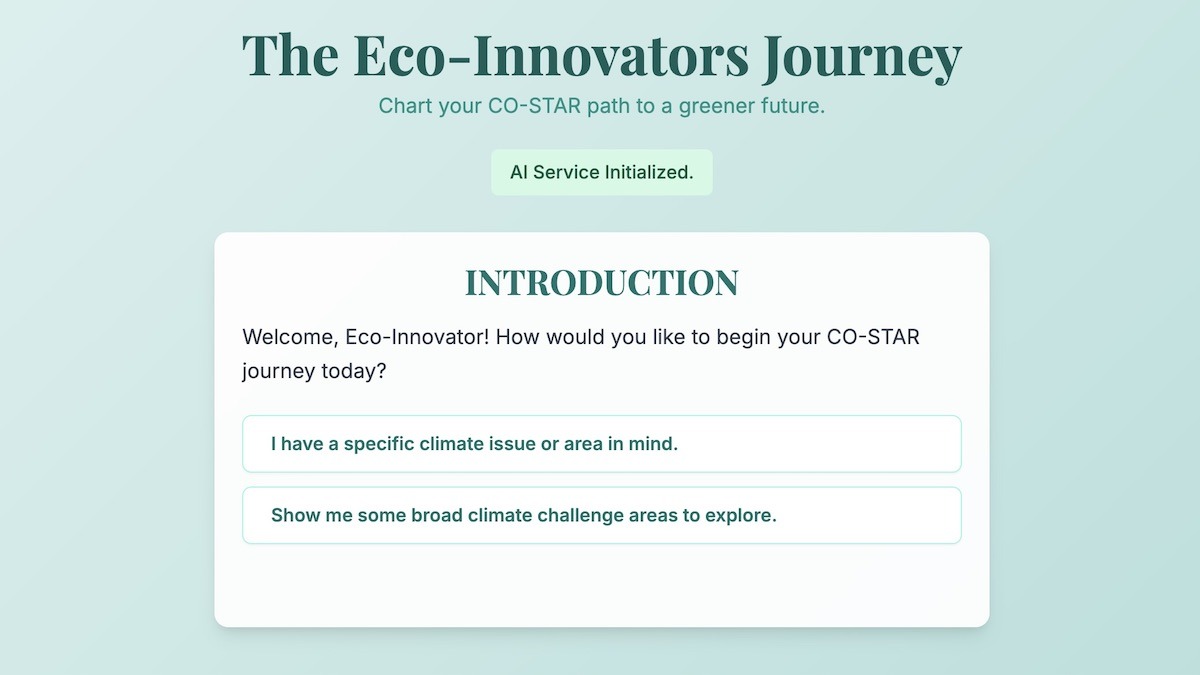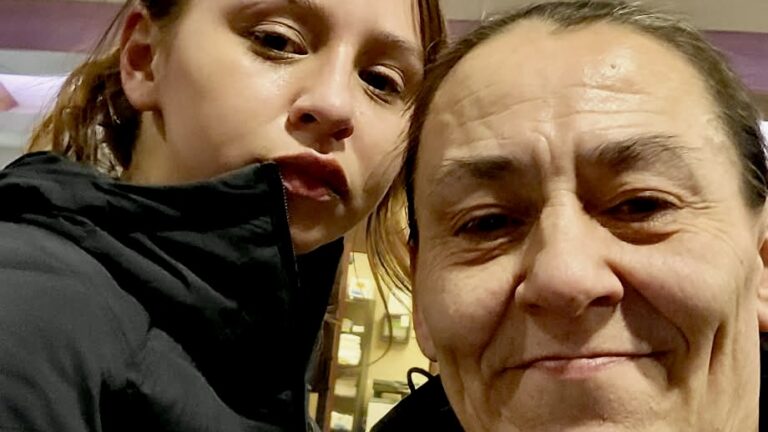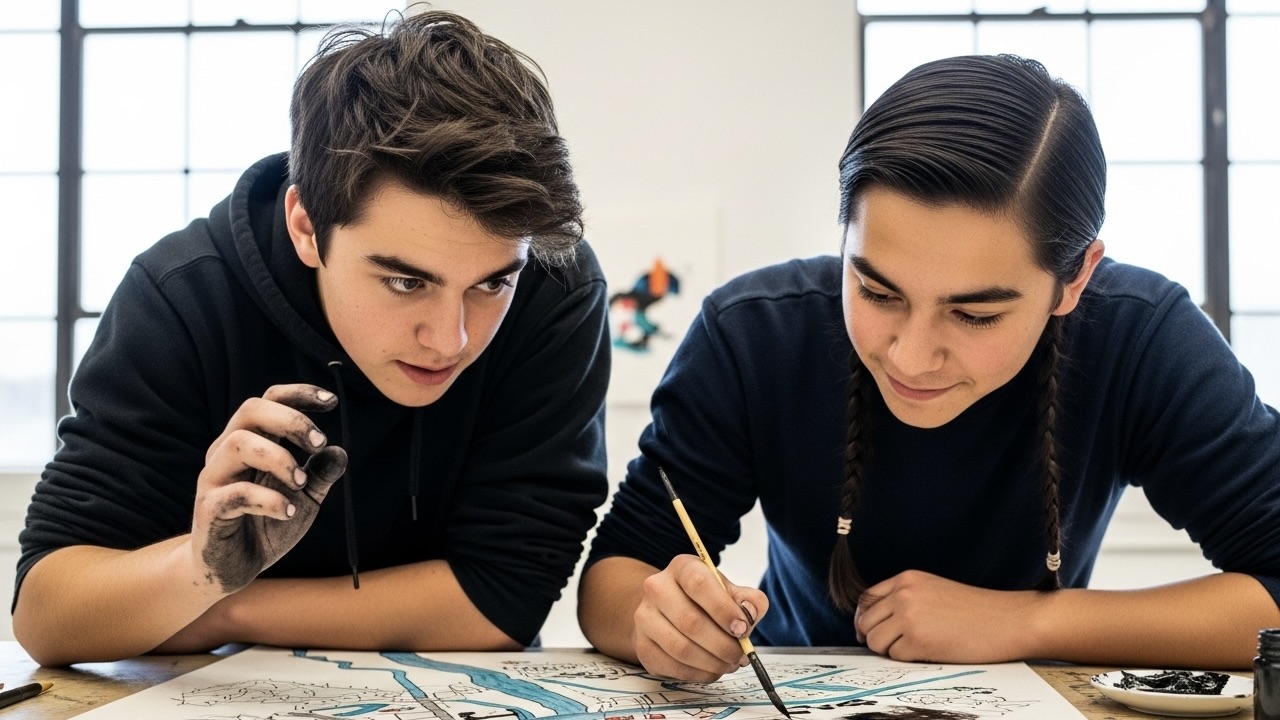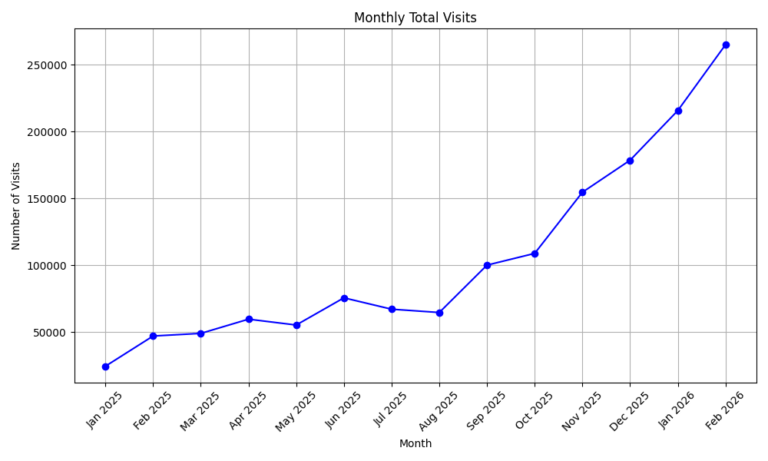
This week, our Digital Arts and Climate Entrepreneurship program has been buzzing with creative energy as we dive into "The Eco-Innovators Journey"! We're exploring how gamification can transform big ideas, like climate entrepreneurship, into something truly approachable and fun.
Game On: Empowering Artists and Climate Entrepreneurs Through Play
Last week’s Weekend AI Arts project activities saw the creation of “The Eco-Innovators Journey.” Inspired by the “Choose Your Own Adventure” format, this interactive experience blended art, storytelling, and technology to help artists and creators explore climate entrepreneurship in a fun, hands-on way.
1. Core Concepts & Learning Goals:
At its core, “The Eco-Innovators Journey” was about inviting users to consider approaches to Climate Entrepreneurship (an emerging field of study!), guiding them to explore, direct and apply creative problem-solving skills towards environmental challenges. While this was created as a fun experiment rather than a finished app, the team learned to develop an approach where environmental issues can become a space for conceptualizing new, sustainable projects.
The CO-STAR Framework, which we’re learning about as part of this summer’s art internship programming, is a key method being put into practice; it’s a structured way to plan and describe any project idea, much like outlining a creative work. The app leads users through its main parts: identifying a Customer (or community) for their project; recognizing an Opportunity to address a need; defining a Solution; understanding the Team that will build the project; identifying their unique Advantage; and describing the Results or impact the project could have. It also includes sections for a clear Problem Statement and Key Resources, which further detail the CO-STAR elements.
“Gamification makes complex learning playful—and deeply memorable for creative minds.”
Gamification
At the very core of the “Eco-Innovators Journey” is gamification. The goal here was to take the complex, often daunting process of entrepreneurial ideation and embed it within a playful, engaging framework. By presenting challenges, offering choices, and delivering instant feedback, learning becomes a dynamic, interactive experience—essentially, a game. This approach is intentional, making a topic approachable and fun, encouraging exploration and lowering the barrier to entry for those new to business concepts. For an arts-related program like ours, this is vital; it uses familiar game design principles to teach practical skills, fostering experiential learning that resonates deeply with a creative mindset.
Iterative Ideation
This interactive process supports Iterative Ideation, similar to how artists refine their work. Users make choices, get specific feedback, and build on a project idea step-by-step. The goal here was to mirror non-linear processes of creative development. This hands-on process also supported Creative Problem-Solving, letting an AI-powered system serve as a “creative space” to explore different ways to address climate issues.
Breaking down the early stages of project development into manageable steps with AI support, the goal was to Demystify Entrepreneurship, showing artists and creators how their skills are valuable to eco-ventures. Another core goal for this project was Empowerment for Rural/Northern Communities, working to make entrepreneurial tools accessible to artists and cultural programs who might not have access to human or technological resources.
And, most importantly, it was a fun and simple way to explore ways to build tools to support local projects that combine artistic work with sustainable practices.
Artists already iterate, refine, and respond. That’s what entrepreneurship is too.

2. Technologies & Technical Approaches:
The Google Gemini API is the AI engine behind this particular interactive experience. Using the gemini-2.5-flash-preview-04-17 model, an AI-powered bot collaborates with the user to manage Dynamic Content Generation. It provides relevant scenario options, offering new perspectives or choices when users need them. It also allows users to make their own suggestions. Gemini also gives concise insights for each user decision, offering direct feedback.
Prompt engineering is the new artistic literacy.
Prompt Engineering: The New Literacy
Prompt engineering skills are rapidly, if not already becoming essential in today’s increasingly AI-driven world, serving as the key to unlocking accurate, efficient, and creative outcomes from powerful language models. As AI continues to integrate into nearly every industry, mastering prompt design is a critical literacy skill for shaping future innovation, communication, and problem-solving.
Activities like this are all about learning skills related to Prompt Engineering, where specific prompts are written to guide Gemini’s responses, whether for structured JSON arrays of options or formatted Markdown summaries. This involves careful design to guide the AI’s output.
For the final CO-STAR Canvas Report, Gemini adds AI-generated guidance and details, prompting users to think more deeply about their ideas. Finally, it creates a personalized summary of a user’s project, with a concluding motivational message to encourage action.
Building a Front and Back End
Frontend Web Technologies define how the journey is presented. Built with HTML, CSS, and JavaScript (ES6 Modules), the application has a clear, organized structure. HTML provides the framework for all elements. Tailwind CSS, along with custom styles, creates the visual design, ensuring a clean and responsive layout that works across devices. JavaScript handles the app’s interactive logic, game flow, project data management, and communication with the Gemini API. This interaction allows for Dynamic UI Rendering, updating a page in real-time as users make choices and AI responses appear.
To protect security, the API key is retrieved from a backend PHP script rather than embedded in the frontend. The project’s development and details are kept consistent using State Management with JavaScript variables. Additionally, the html2pdf.js library allows users to download their personalized “Eco-Innovator’s Canvas” as a PDF, making the digital project into a physical document.
The Application Flow & Structure is based on a Scenario-Driven Narrative, a flexible sequence where a game moves through parts using a small set of pre-defined scenarios. Each part presents a new and different challenge, directly updated by user responses. This allows for User Input & Customization, letting individual ideas and solutions emerge. A History & Navigation feature, including a “Go Back” option, supports users reviewing and changing their choices. The principle of Graceful Degradation means that if the AI service is unavailable, the application can still function with pre-defined content.
We’re not just learning to code. We’re learning to build.
3. Key Approaches & Design Principles:
“The Eco-Innovators Journey” is based on using Interactive Storytelling as a method, and was inspired by a “Choose Your Own Adventure” format. It turns abstract concepts of arts entrepreneurship and climate solutions into an engaging experience, intended to make learning feel more like a creative exploration.
- The project is presented as Prototype & Experimentation, which sets a tone that welcomes artistic freedom and discovery. The skills we learned aimed to reflect the nature of creative work—the process of trying and refining, not just aiming for perfection. This iterative process, common in artistic practice, is central to how users engage with the tool.
- The design also has a User-Centric Design philosophy, guiding users to a personalized output—their unique “canvas”—that shows their thinking.
- Finally, the project emphasizes Actionable Output. The “Eco-Innovator’s Canvas” and its PDF download are tangible forms of an idea, designed as starting points. They encourage users to move from imagination to real contributions for a sustainable future.
Choosing Our Own Adventures: An Artistic Call to Action
Through these interactive experiences, we learn to see how digital tools can transform abstract climate challenges into concrete project ideas that align with artistic practice. Each choice made, each insight gained, crafts a unique blueprint for change. This journey also acts as a launchpad, not just for innovative eco-solutions but for cultivating a new generation of creative artists and climate entrepreneurs who paint their impact with intention.
In this spirit, each week of our program, we dive into building something different. Sometimes we uncover something truly exciting; other times, things break, and we learn from the pieces. It’s all about the joy of learning and creating in a playful space. And through this very process, we’re gaining practical, valuable skills that will be directly applied to our larger, more impactful projects down the line.
It’s not about getting it perfect—it’s about trying, failing, and trying again.
While this project wasn’t designed to be a fully functional application, what we did end up with was the foundation of a powerful engine. With a focus on component reuse and modular design, we’ve built the basic guts of a core storytelling system that can be adapted and expanded. The skills and infrastructure we’ve developed can be reused in future digital arts projects.
Rather than relying on pre-made platforms or third-party tools, this project was built entirely from scratch. Every component—from the frontend interaction to the AI prompt design—was handcrafted by our team of artists, youth, and rural innovators. This intentional approach emphasized not just using technology, but understanding and shaping it. By developing our own interactive storytelling engine, we demonstrated how creative communities can reclaim the digital space, building tools that reflect their values, voices, and visions for a sustainable future.
We’ve built the foundation of a flexible, modular system—ready to grow. Next weekend, we build again.





